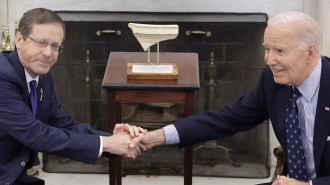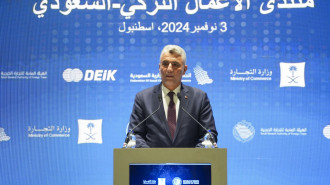Amnesty International urges Spain to suspend Saudi arms sale
Madrid announced earlier this month that it would block the delivery of the weapons to the Gulf kingdom, amid concerns that the missiles could be used to harm civilians in Yemen, where Saudi Arabia is engaged in a bloody conflict.
But on Thursday Foreign Minister Josep Borrell announced his Socialist government had decided to deliver the weapons after all, angering humanitarian groups.
"Campaigners barely had time to welcome the news that Spain was cancelling a major arms shipment to Saudi Arabia before the government began back-pedalling to appease its wealthy customer," said Steve Cockburn, Deputy Director of Global Issues at Amnesty International.
"We are urging the Spanish government to take a stand […] and suspend arms transfers to Saudi Arabia and other members of the coalition for use in Yemen."
"Any other course of action will send an unmistakable message that the Spanish government cares more about protecting its financial interests than protecting the lives of Yemeni civilians."
Saudi Arabia, the UAE and a number of other Arab countries intervened in Yemen in March 2015 after Yemeni Houthi rebels ousted President Abd Rabbo Mansour Hadi's government from the capital Sanaa and seized swathes of the country.
Nearly 10,000 people have been killed in the conflict since then, 2,200 of them children, and sparked what the UN has described as the world's worst humanitarian crisis, which could get worse.
"After more than three years of devastating civil war in Yemen - thousands of dead civilians and an ever-growing list of apparent war crimes - there is no possible excuse for Spain, or any other country, to continue to arm the Saudi Arabia-led coalition," Cockburn said.
Amnesty International said Spain is one of biggest arms exporters to Saudi Arabia.
Madrid signed an agreement with Saudi Arabia in April to sell the Gulf Arab state five warships in a deal estimated to be worth around $2 billion.
A law approved in Spain in 2007 allows for the repeal of deals if there are "rational signs" that defence equipment could be used "for internal repression or in violation of human rights".
Agencies contributed to this report.







 Follow the Middle East's top stories in English at The New Arab on Google News
Follow the Middle East's top stories in English at The New Arab on Google News


